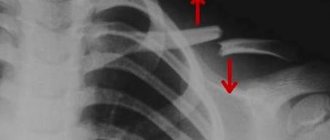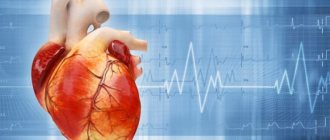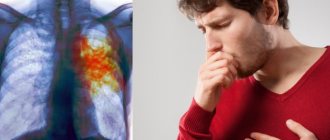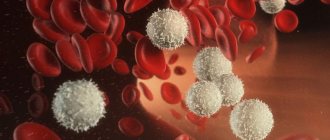Quite a significant number of people from time to time face such a problem as a feeling of pressure in the ears. According to some sources, at least 20-30% of the world's population has experienced this sensation at least once for no apparent reason. Anyone can experience this pain syndrome - the likelihood of its occurrence practically does not depend on age or gender, nor on social status or financial condition.
If we do not take into account the natural cases of the occurrence of this pressure - when flying on an airplane, diving to great depths, sudden rises to altitude, and so on, then the occurrence of this symptom is a sign of a person’s existing health problems. It is worth noting that the occurrence of pressure in the ear does not mean at all that the problem is associated with this organ - simply all the systems of our body are interconnected and the symptom of the disease can manifest itself in this way.
Isolated cases of feeling pressure in the ears may not be a sign of pathology, but they should not be completely ignored either. If you experience these sensations regularly, and are also accompanied by other alarming symptoms (head pain, nosebleeds, dizziness, nausea, weakness, etc.), then delaying a visit to the doctor is simply unacceptable. A combination of several symptoms or multiple repetitions of one - these cases undoubtedly require examination and an accurate diagnosis.
Symptoms
When visiting a doctor about pressure in the ears, some patients mention other symptoms accompanying this sensation:
- dizziness;
- ear congestion;
- associated pressure in the head;
- various noises of varying degrees of volume (ringing, clicking, hum, etc.);
- acoasmas (auditory non-speech hallucinations);
- nausea and headaches;
- increased sensitivity to sounds or light.
The presence of these additional symptoms gives the doctor reason to suspect a serious illness and suggest that the patient undergo a comprehensive examination. An otolaryngologist can also offer consultations with other specialists, since the alleged ailments may not be within his competence.
Prevention
Often, after quick relief or after the unpleasant sensations in the head subside on their own, a person calms down and does not take any measures to prevent a repeat attack. At the same time, a radical revision of your entire lifestyle is the most important step towards good health.
Therapeutic measures to eliminate heaviness in the head must necessarily be supplemented by normalizing the work and rest regime. The duration of sleep should be limited to 8 hours, and time for physical activity should be included in the daily routine. It is necessary to spend more time in the fresh air and, if possible, give up bad habits.
Only such an integrated approach to solving the problem will help you get rid of the heaviness in your head and maintain the clarity of consciousness and thinking necessary for a full life.
Sign up at the MART medical center in St. Petersburg (see map) by calling 8 or leave a request on the website.
Causes
Pressure in the ears occurs due to a number of factors and ailments. These may include serious illnesses and completely harmless ones, for example, prolonged listening to music at high volumes in headphones. The most common causes of pressure in the ears are:
- otosclerosis (bone growth) and inflammation in the middle ear;
- pathologies of a neurological nature (cervical osteochondrosis, pinched vertebrae)
- atherosclerosis of blood vessels in the brain;
- high/low blood pressure of various etiologies (obesity, alcohol and tobacco abuse, depression, stress, heart problems, physical exercise, vascular disorders, etc.);
- injuries of the skull, head;
- tumor (acoustic neuroma) of the auditory nerve;
- otitis, sinusitis, rhinitis, earwax, aerootitis;
- everyday (natural) reasons - long telephone conversations, sleep disturbances, prolonged listening to music, overwork, sudden changes in atmospheric pressure, water getting into the ears, flying on an airplane, diving, etc.
Treatment of dizziness and noise in the head
The main principle of treatment for dizziness and noise in the head is its cause and mechanism of development. Therapy should be aimed at relieving the patient of the symptoms of the disease.
Drug therapy
If the patient has dyscirculatory encephalopathy, drugs are prescribed that normalize cerebral perfusion through an effect on the cardiovascular system. These are diuretics, beta blockers and vascular agents, as well as neurometabolites.
If symptoms occur due to high blood pressure, the doctor will prescribe antihypertensive drugs that control blood pressure levels and keep them within normal ranges. In this case, beta blockers, ACE inhibitors, calcium channel antagonists and diuretics help well.
For cerebrovascular disorders, nootropics, vasodilators, antiplatelet agents and anticoagulants are prescribed.
Kazieva Aminat Ziyavovna
Neurologist
Rostov State Medical University
Experience since 2012
After suffering injuries, to alleviate the condition, patients are recommended to limit physical activity and emotional stress, as well as symptomatic therapy to alleviate the patient’s condition. For this purpose, painkillers and anti-inflammatory drugs from the group of non-steroidal anti-inflammatory drugs are prescribed during periods of deterioration in health.
If the disorder occurs due to a functional cause, such as a tumor, then prompt surgical intervention is necessary.
If a patient has a migraine, the doctor should prescribe preventative treatment to prevent relapses of attacks, as well as medications to stop new episodes of migraine.
To correct anemia and its consequences, a specialist prescribes iron-based antianemic drugs, which can quickly increase the level of hemoglobin in the blood and relieve the symptoms that arise.
During menopause in women, the symptoms of menopause are corrected by menopausal hormone therapy.
Before a long trip in transport, you need to take special anti-motion sickness medications.
Physiotherapy
Physiotherapeutic procedures help, in addition to drug treatment, to get rid of the disease. The most common in treatment:
- Magnetotherapy.
- Laser therapy.
- Massage and physical therapy.
- Healthy swimming.
- Acupuncture.
With systematic, course use of these therapeutic methods, there is a decrease in the symptoms of the disease and their complete disappearance.
Nutrition
An important aspect in monitoring your health and well-being is your diet. A balanced diet rich in vitamins, micro and macroelements allows you to maintain normal blood counts, weight and nutrient levels in the body. Excluding easily digestible carbohydrates, sugar, fatty and fried foods from your daily diet will help avoid cardiovascular diseases, which lead to a systematic increase in blood pressure, as well as type II diabetes and surges in sugar levels.
Kazieva Aminat Ziyavovna
Neurologist
Rostov State Medical University
Experience since 2012
It is equally important to comply with the daily calorie intake, as well as proteins, fats and carbohydrates in the diet. Daily caloric intake is calculated based on a person’s weight and energy expenditure. With a calorie deficit and abuse of fasting and diets, the body experiences stress, which is accompanied by poor health.
Treatment
Obviously, treatment for ear pressure can only begin after a diagnosis has been made. Until the cause is identified, the otolaryngologist is unlikely to be able to prescribe medications or take any other action. In addition, if the cause of the disease is beyond his competence, then it will not be possible to do without the help of an appropriate specialist (therapist, surgeon, neurologist, etc.).
The reception is conducted by specialists
Kirillov Evgeniy Sergeevich
Audiologist
Cost of services
Initial consultation with an audiologist
1200₽
Repeated consultation with an audiologist
1000₽
general characteristics
With ear congestion, patients report a feeling of discomfort, fullness in the external auditory canal, and decreased hearing, accompanied by a constant hum or ringing.
Some people compare the sensation to the ear canal filling with water. With short-term physiological congestion, bilateral symptoms are more often detected; inflammation and other pathological causes can cause unilateral manifestations. Congestion can last from several minutes to several weeks. Patients often notice a connection between discomfort in the ear and acute bacterial or viral infections, injuries to the auricle or head in the temporal region. If congestion bothers you constantly or occurs periodically over several days, this is an indication for a visit to a specialist. It is also necessary to visit a doctor when the symptom is combined with other manifestations - headaches or pain in the ear canal, dizziness, increased body temperature.
When do you need specialist help?
The feeling of a heavy head, nausea, dizziness and difficulty breathing occurs with many diseases, so if the condition does not return to normal within a few days, it is better to go to the clinic. If you start a visit to the doctor, you can even end up with a stroke. The main signs that precede it are the following:
- facial paralysis;
- unclean speech, slurred tongue;
- weakness in the neck and arms;
- lack of coordination;
- sudden headaches.
If you notice these symptoms, immediately call an ambulance - in this case, a heavy head can be a deadly sign.
What to do?
What if, for no apparent reason, there is pressure in the head, nausea, or ringing in the ears? In this state, it is easy to lose your balance and lose consciousness, so follow these recommendations:
- to restore balance, find support, it can be anything: a table, a chair, a tree;
- you will only make the situation worse if you start squatting and closing your eyes;
- pull yourself together, watch your breathing. Panic convulsive breaths should be avoided; breathe through your nose;
- provide air flow. It is necessary to loosen the tie, belt, open the window;
- take a break from work, just rest for a few minutes;
- Drink water; dizziness may be caused by dehydration.
The head often bursts or goes numb in stuffy rooms. For example, in lecture halls it is very easy for students to pass out. To prevent this from happening, you need to try to “switch” and think about something good. There are also situations when your head gets squeezed in the minibus, you start to feel very sick, most likely you just got seasick. In this case, it is better to get off at the first stop, or at least move forward to see the road.
How does a person with a heavy head feel?
The feeling of heaviness prevents you from adequately perceiving the world around you and doing normal things. This is not an ordinary migraine, which goes away on its own after a while, but a long and extremely unpleasant discomfort. The person experiences the following:
- in the morning it becomes difficult to wake up and lift your head from the pillow;
- it seems as if blood from the whole body has accumulated in the skull;
- the sensation is as if the skull is filled with stones;
- difficulty concentrating;
- inadequate perception of information;
- feeling of nausea in the throat;
- lethargy, which makes it difficult to even raise your arm;
- stuffs up your ears and puts pressure on your eyes.
With all this, the symptoms of migraine may not be observed, and the head is simply heavy and wobbly. Relief does not occur even after a long night's rest.
Basic treatment regimens for ear pathology*
| Pathology | Basic treatment methods |
| Sulfur plug | Removal by rinsing or instrumental removal. |
| Otitis externa | Toilet of the external auditory canal, treatment with medications, ear drops, vasoconstrictor nasal sprays, systemic antibacterial or antifungal therapy, FTL**. |
| Tubootitis | Vasoconstrictor nasal sprays, blowing of the eustachian tubes according to Politzer, pneumomassage of the eardrum, FTL**, catheterization of the auditory tubes if necessary. |
| Otitis media | Vasoconstrictor nasal sprays, systemic antibacterial therapy, ear drops, Politzer ear blowing, pneumomassage of the eardrum, FTL**, if necessary, catheterization of the auditory tubes, lavage of the nasal cavity using the moving method. If necessary, surgical treatment - eardrum bypass or paracentesis. Complemented by the treatment of diseases of the ENT organs. |
| Suppurative otitis media | Vasoconstrictor nasal sprays, systemic antibacterial therapy, ear drops, Politzer blowing, if necessary, transtympanic injection of drugs, catheterization of auditory tubes, nasal lavage using the displacement method. If necessary, surgical treatment - eardrum bypass or paracentesis and other operations, FTL**. It is supplemented by treatment of pathologies of the nasal cavity, nasopharynx and paranasal sinuses, if indicated. |
| Exudative otitis media | Vasoconstrictor nasal sprays, mucolytics, Politzer blowing, catheterization of auditory tubes. If necessary, surgical treatment - eardrum bypass or paracentesis, FTL**. It is complemented by the treatment of pathologies of the nasal cavity, nasopharynx and paranasal sinuses. |
| Sensorineural hearing loss | Catheterization of auditory tubes, systemic vascular and vitamin therapy. |
*These treatment regimens are not a recommendation for self-treatment and serve to familiarize patients with basic treatment methods. The final decision on treatment and examination methods is made by the doctor after the examination!
** FTL – physiotherapeutic treatment.
General advice from experts
Does a constant heavy head prevent you from living a full life? Take note of a few general recommendations and try to adhere to them:
- Taking a contrast or cool shower.
- Light massage of the back of the head, temporal areas, neck.
- Gymnastic exercises: neck rotation, head tilts to the side.
- Get a good night's sleep in a well-ventilated area in complete darkness.
- Drink plenty of fluids - at least 1.5-2 liters of liquid per day.
- Review of diet. All junk food is excluded from it.
- Use of orthopedic accessories such as pillow and mattress.
- Manual therapy, physiotherapy.
Why can your ears become blocked and your head feel dizzy?
Ears are blocked and dizzy for various reasons. This can happen after a banal ride on a carousel or driving a car at high speed. With age, the blood vessels of our body become less elastic, and changes in pressure make the vestibular apparatus sensitive and vulnerable.
If your ears are blocked and you feel dizzy for known reasons and this condition quickly passes, then this is more likely a physiological condition than a problem. But the situation takes on a completely different “color” if an unpleasant symptom appears frequently or for no reason. This condition may indicate incipient problems with the central nervous system, as well as the cardiovascular system.
What are the reasons for headaches and stuffy ears?
Diagnostics
Ear congestion is an indication for visiting an otolaryngologist, who conducts a full examination of the hearing analyzer in order to determine the cause of the unpleasant symptoms. Laboratory and instrumental studies are aimed at studying the degree of hearing impairment and morphofunctional changes in various parts of the ear. The following have the greatest diagnostic value:
- Instrumental examination of the external ear
. During otoscopy, inflammatory changes, pathological discharge, cracks or ruptures of the eardrum are detected. To clarify the cause of congestion, microotoscopy is additionally prescribed. - Audiometry
. The degree of dysfunction of the auditory analyzer is assessed using a special device that produces sounds of varying frequencies and volumes. To detect damage to the middle and inner ear, impedance audiometry and tuning fork tests are used. - Assessment of patency of the auditory tube
. Excluding eustachitis involves performing special tests: with an empty throat, Toynbee maneuver or Valsalva maneuver. To objectively study the patency of the Eustachian tube, it is blown through, followed by otoscopy or audiometry. - Laboratory methods
. Discharge from the external auditory canal is collected for bacteriological culture and identification of pathogenic microorganisms. A general blood test is indicative of identifying signs of inflammation. In the presence of a general infectious syndrome, serological diagnostics (ELISA, RIF, PCR) can be used.
For suspected vascular disorders in the organ of hearing, Dopplerography and rheoencephalography are recommended. The presence of neurological symptoms serves as the basis for a CT scan of the skull, MRI of the head, and electroencephalography. If an allergic nature of the disorder is suspected, allergy tests are performed. Patients are also referred for a comprehensive examination to a neurologist and for consultations with other specialists.
Otoscopy for ear congestion
Sensorineural hearing loss
The cause of hearing loss and a feeling of fullness in the ears may be sensorineural hearing loss, which occurs as a result of a violation of the blood supply or innervation in the inner ear.
Sensorineural hearing loss can result from:
- changes in blood pressure due to hypertension;
- acute viral diseases;
- barotrauma;
- fracture of the base of the skull;
- ischemia of the central areas of the auditory analyzer;
- neuroma of the vestibulocochlear nerve;
- compression from the outside by neoplasms and vascular aneurysms.











